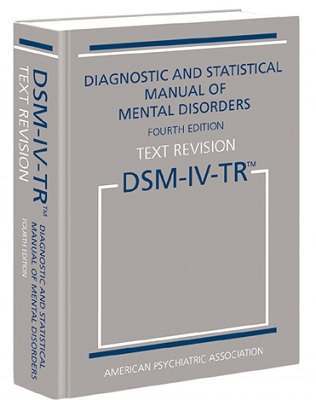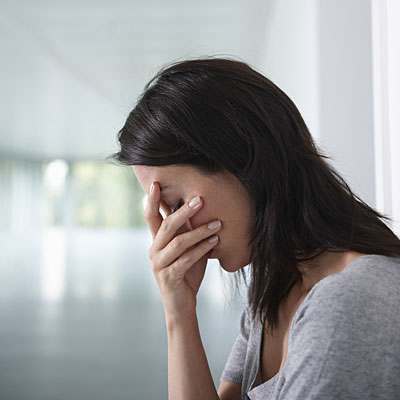Curing Insomnia with Vitamin and Minerals
Poor eating habits or a general lack of important nutrients can lead to sleeplessness or chronic insomnia. It is indeed true that we are what we eat and it turns out that in this case, what we consume does affect the quality of our sleep. Therefore, the importance of maintaining a balanced diet cannot be stressed enough.
We will now examine the vitamins and minerals that can assist in battling insomnia. Be mindful however that you will probably not witness changes until you have consistently taken your vitamins and minerals over a course of two or more weeks. Additionally the rate of vitamin absorption also slows down with age.
Vitamin B Complex
 It is in your best interest to get the required amount of B Vitamins. However some are particularly effective in promoting a restful sleep. They are as follows:
It is in your best interest to get the required amount of B Vitamins. However some are particularly effective in promoting a restful sleep. They are as follows:
Vitamin B3 (niacin): This vitamin plays a vital role in keeping tryptophan ( a sleep inducing amino acid) at the required level. It helps you to fall asleep easily and lowers the likelihood of restlessness during the night.
Vitamin B5 (pantothenic acid): is a stress reducer and a lack of B5 can result in constant wakefulness and resultant tiredness.
Vitamin B9 (folic acid): is highly required since a lack of this vitamin usually results in insomnia.
Vitamin B12 (cobalamin): helps you to fall asleep and regulates the circadian rhythm or sleep pattern.
Please note that if you smoke, drink or use contraceptives you are more inclined to absorb these vitamins more rapidly and you will need to increase your dosage.
You may get B vitamins from molasses, potatoes, bananas, fish, turkey, liver, liver oil and nutritional yeast. However B Vitamins can also increase the energy levels in some individuals and so you should consider taking them for a week or more and specifically two hours before bedtime in order to determine how your body responds to it.
Calcium
 Calcium relaxes you and is necessary for blissful sleep. The smallest hint of calcium deficiency will lead to stiff muscles and insomnia. Calcium can be found in dairy products, nuts, oranges, broccoli, eggshells and some fortified food or beverages. This is best taken with Magnesium and Vitamin D since both are necessary for effective absorption.
Calcium relaxes you and is necessary for blissful sleep. The smallest hint of calcium deficiency will lead to stiff muscles and insomnia. Calcium can be found in dairy products, nuts, oranges, broccoli, eggshells and some fortified food or beverages. This is best taken with Magnesium and Vitamin D since both are necessary for effective absorption.
Magnesium
If your magnesium levels falls below that which is necessary then it will negatively affect your central nervous system. Magnesium can be found in grains, molasses and kelp.
Copper and Iron
There is evidence of a direct correlation between copper and iron deficiencies and insomnia. However it is important that you do not take more than the required dosage as this will have adverse effects.
Melatonin
Melatonin is a hormone that sends a message to the brain that it is dark and time for bed. Some physicians however, are reluctant to prescribe it because it functions as a hormone but there is currently no proof that taking it is harmful. Nevertheless, you should take it in low doses and desist from taking it on a regular basis.

 Subscribe Now
Subscribe Now

 Vitamin A is an essential vitamin for our body as it helps promote healthy teeth, skin, bones and mucous membrane. Studies have also shown that Vitamin A is a major factor in healthy brain functions such as sleep quality and memory. We can obtain Vitamin A by eating meat, eggs and milk to name a few. Vitamin A supplements are available in drugstores but it is important that you do not exceed the proper dosage as it can lead to some unwanted side effects.
Vitamin A is an essential vitamin for our body as it helps promote healthy teeth, skin, bones and mucous membrane. Studies have also shown that Vitamin A is a major factor in healthy brain functions such as sleep quality and memory. We can obtain Vitamin A by eating meat, eggs and milk to name a few. Vitamin A supplements are available in drugstores but it is important that you do not exceed the proper dosage as it can lead to some unwanted side effects. Vitamin D
Vitamin D
 Insomnia
Insomnia There is a connection between the level of dopamine and sleep. Dopamine levels will have some massive effects on the human mind and body depending on its production. Low level of dopamine can cause
There is a connection between the level of dopamine and sleep. Dopamine levels will have some massive effects on the human mind and body depending on its production. Low level of dopamine can cause 
 What Causes Insomnia with Pregnant Women?
What Causes Insomnia with Pregnant Women? If you still find yourself unable to sleep while lying on the bed then you should get up as there is no point in forcing yourself to sleep. Why not grab a book for some light reading or just walk around the house for a couple of minutes to get your mind off the fact that you are having difficulty sleeping.
If you still find yourself unable to sleep while lying on the bed then you should get up as there is no point in forcing yourself to sleep. Why not grab a book for some light reading or just walk around the house for a couple of minutes to get your mind off the fact that you are having difficulty sleeping.
 Interestingly, sleeplessness also increases cortisol which is also known as the stress hormone. If this hormone is consistently secreted then it is likely to lead to fat build up around the abdominal lining. Even though the findings indicate that insomnia can result in weight gain. This however, may not necessarily be the case, because there a myriad of factors that may also be responsible. Your calorie intake, the food you eat, the portion that you eat, when and how often you eat, all play crucial roles in determining whether or not you will witness an increase in you body mass index.Nevertheless, chances are you may however need to change your diet. First of all, you should examine how much caffeine you consume on a daily basis.
Interestingly, sleeplessness also increases cortisol which is also known as the stress hormone. If this hormone is consistently secreted then it is likely to lead to fat build up around the abdominal lining. Even though the findings indicate that insomnia can result in weight gain. This however, may not necessarily be the case, because there a myriad of factors that may also be responsible. Your calorie intake, the food you eat, the portion that you eat, when and how often you eat, all play crucial roles in determining whether or not you will witness an increase in you body mass index.Nevertheless, chances are you may however need to change your diet. First of all, you should examine how much caffeine you consume on a daily basis. In fact even a few cups of caffeinated coffee can contribute to sleeplessness because caffeine reduces the effectiveness of adenosine a sleep inducing chemical found in the brain.I would therefore recommend that you refrain from having caffeinated drinks at least eight hours before you retire. In fact, it would be in your best interest if you could eliminate
In fact even a few cups of caffeinated coffee can contribute to sleeplessness because caffeine reduces the effectiveness of adenosine a sleep inducing chemical found in the brain.I would therefore recommend that you refrain from having caffeinated drinks at least eight hours before you retire. In fact, it would be in your best interest if you could eliminate